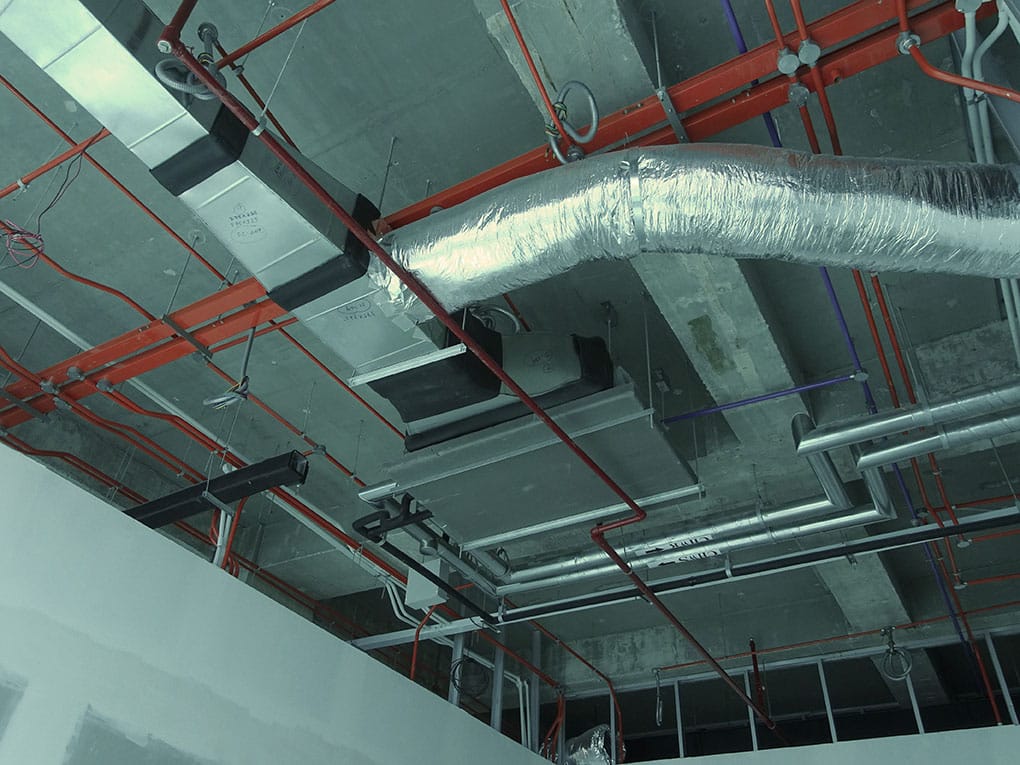Ductless HVAC systems have almost too many advantages to list. They offer zoning controls, high levels of efficiency, and consistent temperatures. However, one big advantage is that they aren’t ducted. When you upgrade to a ductless air source heat pump, you don’t have to worry about losing efficiency due to air traveling through ducts, and you also can forget about the health risks of ductwork.
Thinking about adding ductwork to your home? Wondering if you should stick with your ducted central HVAC equipment or switch to ductless equipment? Here are five reasons, you should avoid ducts for the sake of your family’s health.

1. Exacerbation of Pre-Existing Conditions
If anyone in your family has asthma, allergies, or pulmonary conditions like COPD, you need clean air. Unfortunately, your ducts can make that impossible. They harbor allergens such as pollen, dust mites, and pet dander that can easily make pre-existing conditions worse.
2. Respiratory and Sinus Infections
Even if you’re perfectly healthy, dirty air ducts can affect you. Keep in mind that all of the air in your home passes through your air ducts. That means that all of the dust, dust mites, allergens, fungi, and bacteria that are in your house get into the ducts. Once in the ducts, the allergens, fungi, and bacteria can live a surprisingly long time, and they can make you sick.
Keep in mind that in a lot of cases, you’re not just inhaling the dust and allergens that you have produced. If you’ve only lived in your home for a few years, your ducts may still be affected by previous occupants. In particular, even if you’re a pet-free and smoke-free house, you may have pet dander, smoke, or tobacco by-products in your ducts from former residents.
3. Cold and Flu Symptoms
Respiratory and sinus infections are usually the first health conditions you develop when you breathe in dirty air, but they aren’t the last. In some cases, the bacteria in your HVAC ducts can cause colds or flu that affect your whole body.
In homes, it’s often hard to measure these effects, but when researchers have studied the effects of poor air quality in office environments, they’ve found that workers have fewer sick days in offices with better air quality. If you feel generally unwell a lot of the time, the culprit could be your indoor air quality which is heavily impacted by your ducts.
5. Dry or Itchy Skin
Central HVAC systems often dry out the air in your home. That can make your skin feel dry and itchy. Even worse, if your ducts are harboring mold and mildew, you may have an allergic reaction that includes dry and scaling skin.
How to Reduce the Health Effects of Air Ducts
So, how do you reduce these health effects? How do you make your home a healthier place to breathe? Check out these tips.
- Change your filters — All of the air in your home passes through your HVAC filters. Protect your family by changing your filters at least once a year and more often if you smoke, have pets, or cook a lot.
- Upgrade your filters — In a lot of cases, you can improve the quality of your indoor air by upgrading from the standard filter to something stronger.
- Clean your air ducts — Get rid of the dust and allergens in your HVAC ducts by scheduling duct cleaning. This is dusty work so you may want to have it done when you’re not home.
- Invest in a whole-home filtration system — A whole-home filtration system can improve the filtration that’s happening in your HVAC system.
- Consider upgrading to ductless — Keep in mind that you don’t have to have ducts, and if possible, you should avoid it. With a ductless air source heat pump, you can enjoy efficient heating and cooling, without ductwork. As an added advantage, many ductless systems come with very high-end filters.
Contact Us at N.E.T.R., Inc
At N.E.T.R., Inc, we work with ducted HVAC systems, but we’re also huge advocates of ductless heating and cooling. Want to learn more about the benefits of a ductless system? Need help cleaning your existing ductwork? Wherever you are in your journey to clear air, we’d love to help. Contact us today to schedule a consultation.

